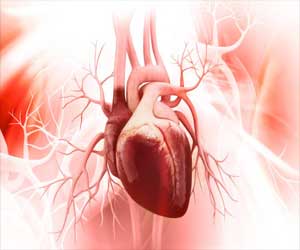- Home
- Editorial
- News
- Practice Guidelines
- Anesthesiology Guidelines
- Cancer Guidelines
- Cardiac Sciences Guidelines
- Critical Care Guidelines
- Dentistry Guidelines
- Dermatology Guidelines
- Diabetes and Endo Guidelines
- Diagnostics Guidelines
- ENT Guidelines
- Featured Practice Guidelines
- Gastroenterology Guidelines
- Geriatrics Guidelines
- Medicine Guidelines
- Nephrology Guidelines
- Neurosciences Guidelines
- Obs and Gynae Guidelines
- Ophthalmology Guidelines
- Orthopaedics Guidelines
- Paediatrics Guidelines
- Psychiatry Guidelines
- Pulmonology Guidelines
- Radiology Guidelines
- Surgery Guidelines
- Urology Guidelines
Myocardial viability not associated with long-term benefit of CABG: NEJM

Delhi: Myocardial viability has been known to identify ischemic cardiomyopathy patients who may have benefited from surgical revascularization but the assumption has always been controversial, some cardiologists support the notion and some do not. Now, findings from a 10-year long study do not support the concept that myocardial viability is associated with a long-term benefit of CABG in patients with ischemic cardiomyopathy.
Julio A. Panza, Westchester Medical Center, New York Medical College, Valhalla, and colleagues reported their findings in The New England Journal of Medicine.
Viable myocardium can be defined as myocardium in which contractile function is expected to improve, or in which remodeling can be avoided, once blood flow has been restored. The concept of viability is the opposite of that of necrosis, which implies an irreversible alteration in contractility. In patients with severe left ventricular dysfunction of ischemic origin, revascularization leads to improvements in ventricular function, survival, and prognosis. Such improvements may be due to the presence of myocardial viability.
This is a substudy of the STICH trial that compared medical therapy alone with coronary artery bypass grafting [CABG] in patients with coronary artery disease and left ventricular ejection fraction [LVEF] of ≤35%. Myocardial viability was assessed using single-photon-emission computed tomography, dobutamine echocardiography, or both. Patients were randomly assigned to undergo CABG and receive medical therapy or to receive medical therapy alone.
The primary endpoint was death from any cause. The median duration of follow-up was 10.4 years.
Of the 1212 patients enrolled in STICH, 601 had myocardial viability testing, of whom 19% were classified as having no viability.
Key findings include:
- CABG plus medical therapy was associated with a lower incidence of death from any cause than medical therapy alone (182 deaths among 298 patients in the CABG group vs. 209 deaths among 303 patients in the medical therapy group)
- No significant interaction was observed between the presence or absence of myocardial viability and the beneficial effect of CABG plus medical therapy over medical therapy alone.
- An increase in left ventricular ejection fraction was observed only among patients with myocardial viability, irrespective of treatment assignment.
- There was no association between changes in left ventricular ejection fraction and subsequent death.
"The presence of viable myocardium was associated with improvement in left ventricular systolic function, irrespective of treatment, but such improvement was not related to long-term survival," wrote the authors.
The bottom line of the study is -- myocardial viability does not predict mortality or benefit from revascularization .
To read the complete study log on to DOI: 10.1056/NEJMoa1807365

Disclaimer: This site is primarily intended for healthcare professionals. Any content/information on this website does not replace the advice of medical and/or health professionals and should not be construed as medical/diagnostic advice/endorsement or prescription. Use of this site is subject to our terms of use, privacy policy, advertisement policy. © 2020 Minerva Medical Treatment Pvt Ltd